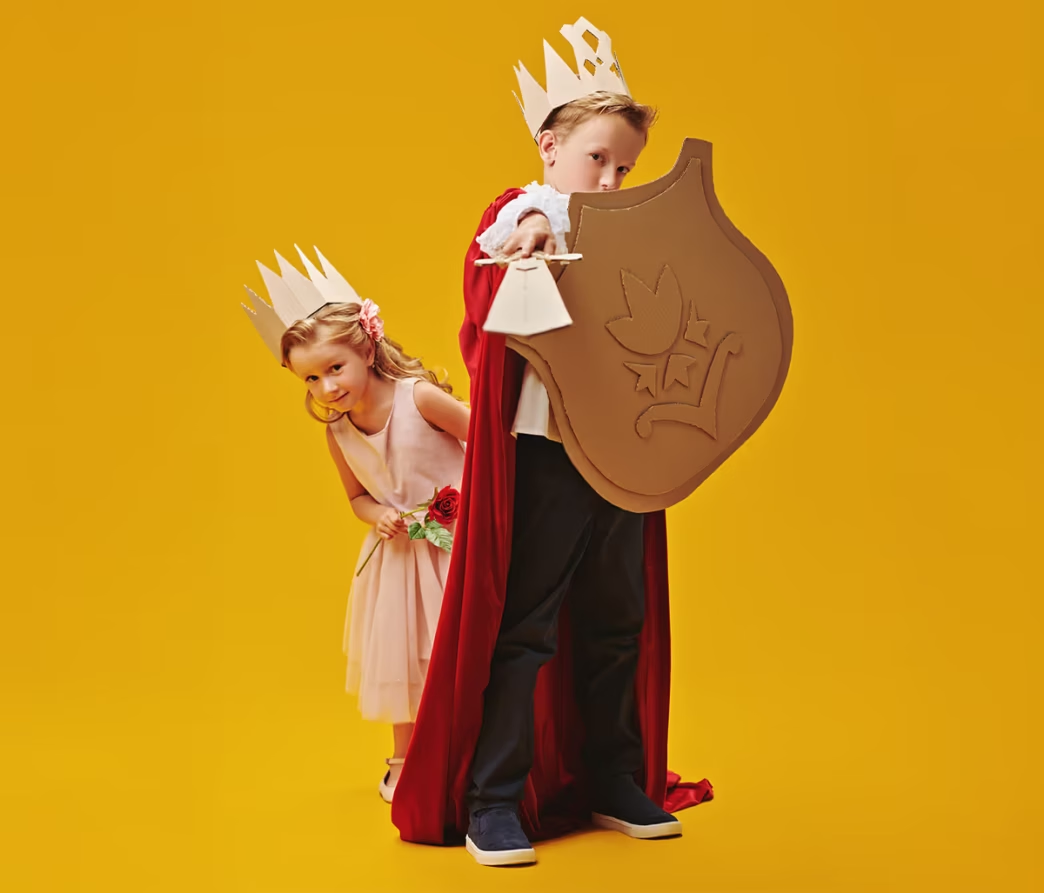Look at the website of most any performing arts schools, you’re bound to find the word “confidence” written several times, possibly in bold font. It’s a key reason parents enrol their child in the performing arts. Either their child is confident and would be perfect for the stage or they lack confidence and would like to build it. But why worry about our children’s confidence? Because confidence is important in the real world. We want our children to have the ability to speak publicly, to suggest ideas in a meeting, to stand up for what they believe in.
A close second to confidence is creativity. It is often said that the modern world is stifling creativity. The impact of screen time is certainly influencing children’s imagination and creative thinking. Creativity is key in the world of theatre. Taking on the role of a character and telling their story involves being bravely creative. Even the youngest of acting students are encouraged to use their imaginations and play imaginatively. Children with great imaginations are better able to play independently and are likely to get along better with their peers. As they get older, they tend to be better problem solvers and are more likely to succeed.
Lesser talked about skills within theatre are listening and focusing. People tend to associate the performing arts with talking rather than listening, however, for a play to run smoothly it is vital that the actors remain fully focused and in tune with what is happening. A missed cue can completely change the trajectory of a show. We are living in an age of distraction and learning to focus is a skill which can truly set you apart from others. On stage, an actor has no choice but to focus fully. These skills enable young performers to thrive both academically and socially.
Actors must be adaptable. To outsiders it may seem that performing a play is repetitive but there are plenty of things that can go wrong onstage and performers must be able to adapt.
A common example of this is a performer not turning up on show day, performing arts students learn how to adapt. From missing cast members, dropped lines or props going missing – this adaptability is an asset in everyday life. We know, life doesn’t always go to plan but being able to adapt is vital for success!
Another benefit of the performing arts is the ability to trust. Being able to trust other people is a key part of society, and theatre people know how to trust like no others. Allowing yourself to be silly in a drama class involves being vulnerable in a group of people you are with. In dance, certain lifts require huge trust between the dancers (thanks Kevin Bacon!)
Whilst on the surface, theatre classes may seem to be geared towards the loud and confident, the life skills taught in these classes are invaluable.












